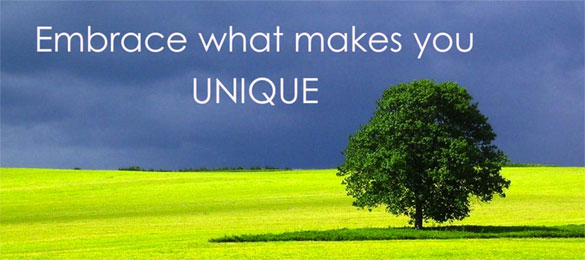
By Lubna Anwar, New Age Islam
28 September 2020
The last few months have been particularly trying and testing times for us all, each of us having our own set of challenges to deal with. But what is more worrying than the evident conundrum is the unfolding of events around us. The events that have brought about the feeling of disdain for one another. We have certainly travelled a long distance as an intelligent species, from space exploration to advancements in artificial intelligence, yet we must know that our biggest achievement would be synonymous to our name and that is our humanity. Our biggest test of success would be the degree of our humanity. But we seem to be still stuck in racism, nepotism, caste-ism or even patriotism, the undertone being the same: “excluding what is not like you or amongst you.”

If we go back in time and try to trace our origins, we are all seemingly aware of our humble beginnings. Theist, atheist or any other possible “iest” that you could be, the commonality lies in every faction. Whether you believe in the creation theory or the evolution, or evolution through divine intervention, we all know that we have been created equal (being the progeny of Adam a.s.), or as an evolutionary product of a common event (big bang).
Then how come we’ve come so far in becoming a fragmented, divided, “us vs. them” society??
The beauty of life lies in its diversity. For ever since man has come into existence, at least in the recorded history, we’ve been fascinated by the deluge of variety and differences surrounding us at all times and that perhaps is what makes us what we are.
This article talks about Quran and Hadith emphasizing and exhorting humanity several times to build an inclusive society. I will limit myself here to citing four examples:
1. "O mankind, indeed we have created you from male and female and made you peoples and tribes that you may know one another. Indeed, the most noble of you in the sight of Allah is the most righteous of you. Indeed, Allah is Knowing and Acquainted." – (Holy Quran verse 49:13)
A majority of people misconstrue that Quran is only to do with Muslims, while clearly it is a guidance for all of mankind. No doubt there are verses which are specific for adherents of the monotheistic faith, but they explicitly begin with, “O believers”. These essentially are instructions which anyone who comes under the fold of Islam has to follow and comply with. Other than that Quran is for all of humanity. In this verse Allah swt points out the commonality of every human being indicating that we have all sprung from a single ancestor and hence nothing makes us bigger, better, apart or more privileged than any other, except for righteousness or Taqwa. So everything boils down to good deeds and character, nothing more nothing less.
2. "O my servants, I have forbidden oppression for myself and have made it forbidden among you, so avoid being unjust to one another" (Hadith). A very powerful narration which says none should oppress another, oppression has various forms, one often overlooked form is disenfranchisement, when you make someone feel an outsider, not a part of a larger group or the system on the whole, you are basically subjecting them to fear and dejection, which in itself is a form of oppression. There is a close link between oppression and injustice, when you treat people differently owing to their differences, be it in colour, culture, race, religion or social class. You are oppressing the ones you are treating differently. The recent CAA bill in India is a classic example, where all people from neighbouring Muslim countries who arrived in India till 2014, except for Muslims, can claim refugee status. This has left the community ostracized and vulnerable. In this verse injustice is strictly condemned.
3. “There is no compulsion where the religion is concerned.” (Holy Quran verse 2: 256): This is particularly one of my favourite verses in the Quran. Here I would bring into perspective a practice related to jihad (the most misunderstood concept in Islam), during prophet Muhammad’s time and even long after him during the Khelafat period. Whenever the Muslims conquered a new territory, they refrained from forcibly converting people to Islam. Whatever number of people embraced the religion was solely based on the strong influence the Muslim community had on them. Their just character and unflinching spirit left a deep mark on the Christian and Jewish communities of the time and brought them into accepting Islam. Even after the conquest most of the holy sanctuaries (church, synagogue) were not destroyed or converted into mosques. The worship places were mostly left open to worship as before. This was exemplary and perhaps one of the reasons for people to get strongly influenced by Islam and Prophet Muhammad.
4. "There is no superiority of an Arab over a non-Arab, or of a non-Arab over an Arab, and no superiority of a white person over a black person or of a black person over a white person, except on the basis of personal piety and righteousness." (Last sermon of Prophet Muhammad SAW)
This statement emphasizes the equality of mankind. It goes to the extent of saying that one might be from the land of prophet but that doesn’t and shouldn’t give him any precedence or priority over a non-Arab. This further goes on to shun any such notion which would give priorities based on colour, caste, creed etc. Islam particularly condemns the idea of caste-ism, stating that all believers are equal and none is superior to another except in piety (devotion).
---
Lubna Anwar is a Freelance Writer and Educator with a Master’s degree in information technology. She’s currently pursuing a course in Creative Writing at the University of Toronto.
New Age Islam, Islam Online, Islamic Website, African Muslim News, Arab World News, South Asia News, Indian Muslim News, World Muslim News, Women in Islam, Islamic Feminism, Arab Women, Women In Arab, Islamophobia in America, Muslim Women in West, Islam Women and Feminism

No comments:
Post a Comment